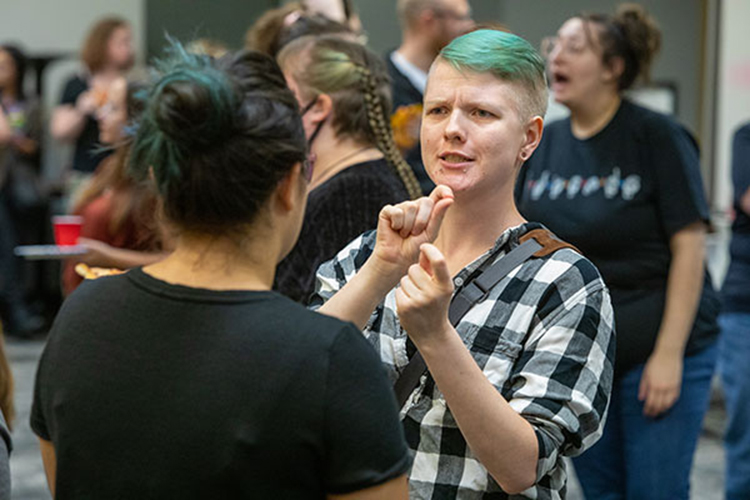The School of Education is introducing a new bachelor’s degree in American Sign Language/English Interpreting.
Formerly a submajor under the bachelor’s degree in education, the program has graduated more than 300 students since 1993. The change, approved by the Board of Regents in December, makes it a stand-alone B.S. degree.
One of the goals of the change, is to increase the visibility of the degree, according to Pam Conine, clinical professor and director of the program. The elevation of the program to a major will also make it easier to prepare students for professional work in a variety of education and community settings, she added.
UWM offers the only four-year bachelor’s degree in ASL/English Interpreting in the state of Wisconsin that prepares students for both K-12 education and community settings.
The bachelor’s degree is required to be eligible for national certification testing, and with the completion of the major, graduates will also be able to qualify for one or both of Wisconsin’s interpreting licenses. The Department of Public Instruction license allows interpreters to work in educational settings; the Department of Safety and Professional Services license allows interpreters to work in community setting other than K-12 education.
UWM’s program includes giving students a background in not only the language, but in Deaf culture and history and the ethics of interpreting. The program also seeks to develop a diverse group of interpreters, working in a variety of communities. Students complete field experiences, community service and internships. The program has partnerships with the College of Nursing and the Sorenson Synergy Program.
ASL interpreters are in demand. The U.S. Department of Labor says employment of interpreters and translators is projected to grow 24 % from 2020 to 2030, much faster than the average for all occupations. ASL interpreters are particularly sought after, according to the Bureau. Graduates can work in medicine, law, mental health, government, human resources, theater and entertainment. Video relay systems also offer job opportunities to interpreters.
